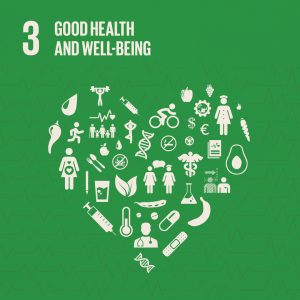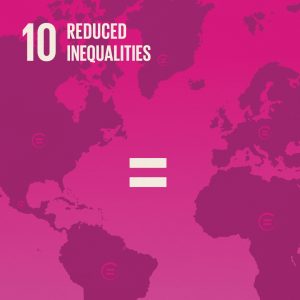“The end is reconciliation; the end is redemption; the end is the creation of the Beloved Community. It is this type of spirit and this type of love that can transform opponents into friends. It is this type of understanding goodwill that will transform the deep gloom of the old age into the exuberant gladness of the new age. It is this love which will bring about miracles in the hearts of men.” ~Martin Luther King, Jr.
Wellbeing is one of the system conditions of a sustainable world, one of the four points of the Sustainability Compass.
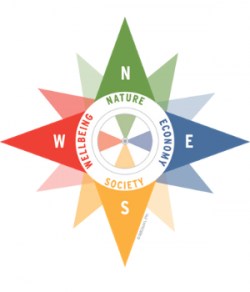
The Sustainability Compass
What is wellbeing anyway? Merriam-Webster defines wellbeing as “the state of being happy, healthy, or prosperous.”
The Gallup organization conducted a landmark study of people in more than 150 countries and identified five interdependent elements of wellbeing universally shared throughout humanity, and then reported them in the book Wellbeing: The Five Essential Elements, by Tom Rath and Jim Harter. The Five Essential Elements:
• Career Wellbeing
• Social Wellbeing
• Financial Wellbeing
• Physical Wellbeing
• Community Wellbeing
Gallup maintains a Wellbeing Index to monitor and report the status of wellbeing in individuals and communities in the United States and around the world.
Similarly, the Auburn University Office of Health Promotion and Wellness Services emphasizes Nine Dimensions of Wellness:
• Physical Wellness
• Emotional Wellness
• Intellectual Wellness
• Spiritual Wellness
• Social Wellness
• Environment Wellness
• Occupational Wellness
• Financial Wellness
• Cultural Wellness
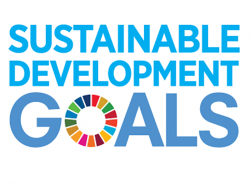
The Sustainable Development Goals address the global challenges we face, including those related to poverty, inequality, climate change, environmental degradation, peace and justice.
During the decade of the 2010s, the nations of the world joined together to create seventeen global goals “to achieve a better and more sustainable future for all.” Every one of the Sustainable Development Goals (SDGs), relate to human wellbeing, and Goal 3 targets wellbeing specifically: “Good Health and Wellbeing: Ensure healthy lives and promote wellbeing for all at all ages.”
It is obvious from these elements, dimensions, and goals that the wellbeing of each is the responsibility of all. Our life satisfaction is inextricably linked to others and dependent on our relationships with others. All others. None of us can achieve wellbeing on our own yet all of us can contribute to the wellbeing of ourselves and others.
Our shared responsibility to generate wellbeing for all is an important point right now given the drumbeat of toxicity that has come to dominate our national discourse and enflame uncivil, actively hostile words and actions within the United States and between the United States and others around the world, a negative energy that is shredding the fabric of our society.
Given this state of affairs, some questions come to mind. What is my responsibility to others? What are my intentions? What do I hope to achieve? Is life a zero-sum game? If I see the pie of wellbeing as limited (which it is not) do I take all I can get and leave whatever scraps remain to be fought over by the rest? How do I perceive others, especially those that seem different from me? Are they less worthy than me of a decent life? Are they enemies to be crushed?
Not contributing to the toxicity of the discourse is not enough.
The last essay written by the great moral leader and Congressman John Lewis was published in the New York Times on August 30, 2020, the day of his funeral. He titled it “Together, You Can Redeem the Soul of Our Nation.” In that column he reminds us that Dr. King “…said we are all complicit when we tolerate injustice. He said it is not enough to say it will get better by and by. He said each of us has a moral obligation to stand up, speak up and speak out. When you see something that is not right, you must say something. You must do something.”
If the endpoint is not, as Dr. King says, “reconciliation…redemption…the Beloved Community” we are doomed to a cycle of misery, oppression, injustice, inequality, prejudice, antagonism, racism, bitterness, illness, and death. If we sow hatred and division, that is what we reap. There are no winners in that cycle. Everyone loses.
What’s frustrating is that evidence tells me that, almost without exception, we humans desire wellbeing for ourselves and it is in our nature to desire for and contribute to the wellbeing of others. Plenty of examples come to mind if we think about it. As Americans, we are constitutionally committed to shared meaning, shared effort, shared prosperity. Commitment to the general welfare is found among our most cherished aspirations and in our founding documents.
I am always inspired when I think about how the Declaration of Independence and the Preamble to the Constitution bookend this very point.
The very last statement in the Declaration of Independence, right before John Hancock wrote his signature large enough for King George to read it without his spectacles, is this: “And for the support of this declaration, with a firm reliance on the protection of Divine Providence, we mutually pledge to each other our lives, our fortunes, and our sacred honor.”
The Preamble to the Constitution: “We the People of the United States, in Order to form a more perfect Union, establish Justice, insure domestic Tranquilty, provide for the common defence, promote the general Welfare, and secure the Blessings of Liberty to ourselves and our Posterity, do ordain and establish this Constitution for the United States of America.”
If that’s not enough, the de facto national motto of the United States is E Pluribus Unum, which was originally intended to convey the 13 colonies joining together as states within a national union, and more recently has come to mean “out of many people, one American people.”
The intentions wrought out of the struggle for freedom in the late 1700s continue to inspire Americans and people all over the world. For these words to be more than sentiments each generation must embrace them anew, and “pledge to each other our lives, our fortunes, and our sacred honor,” so that we may progress along the path toward “a more perfect Union…Justice…domestic Tranquilty…the common defense… the general Welfare, and secur[ing] the Blessings of Liberty to ourselves and our Posterity….”
We are fully capable of achieving the wellbeing for all that arises within the Beloved Community that these commitments represent, if we accept our shared responsibilities and opportunities, if we collectively decide that this remains a goal worth pursuing.
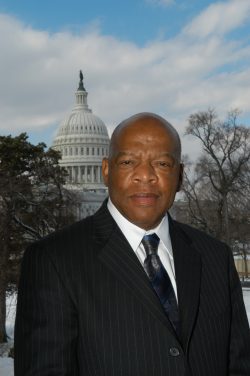
The official photo of Congressman John Lewis from his website whose content constitutes a work of the Federal government under sections 105 and 403 of title 17 of the U.S. Code.
Congressman John Lewis gets the last word. From his essay:
“While my time here has now come to an end, I want you to know that in the last days and hours of my life you inspired me. You filled me with hope about the next chapter of the great American story when you used your power to make a difference in our society. Millions of people motivated simply by human compassion laid down the burdens of division. Around the country and the world you set aside race, class, age, language and nationality to demand respect for human dignity.”
“Democracy is not a state. It is an act, and each generation must do its part to help build what we called the Beloved Community, a nation and world society at peace with itself.”
“Though I may not be here with you, I urge you to answer the highest calling of your heart and stand up for what you truly believe. In my life I have done all I can to demonstrate that the way of peace, the way of love and nonviolence is the more excellent way. Now it is your turn to let freedom ring.
“When historians pick up their pens to write the story of the 21st century, let them say that it was your generation who laid down the heavy burdens of hate at last and that peace finally triumphed over violence, aggression and war. So I say to you, walk with the wind, brothers and sisters, and let the spirit of peace and the power of everlasting love be your guide.”
Learn about the SDGs & AU and our contributions related to this post.

